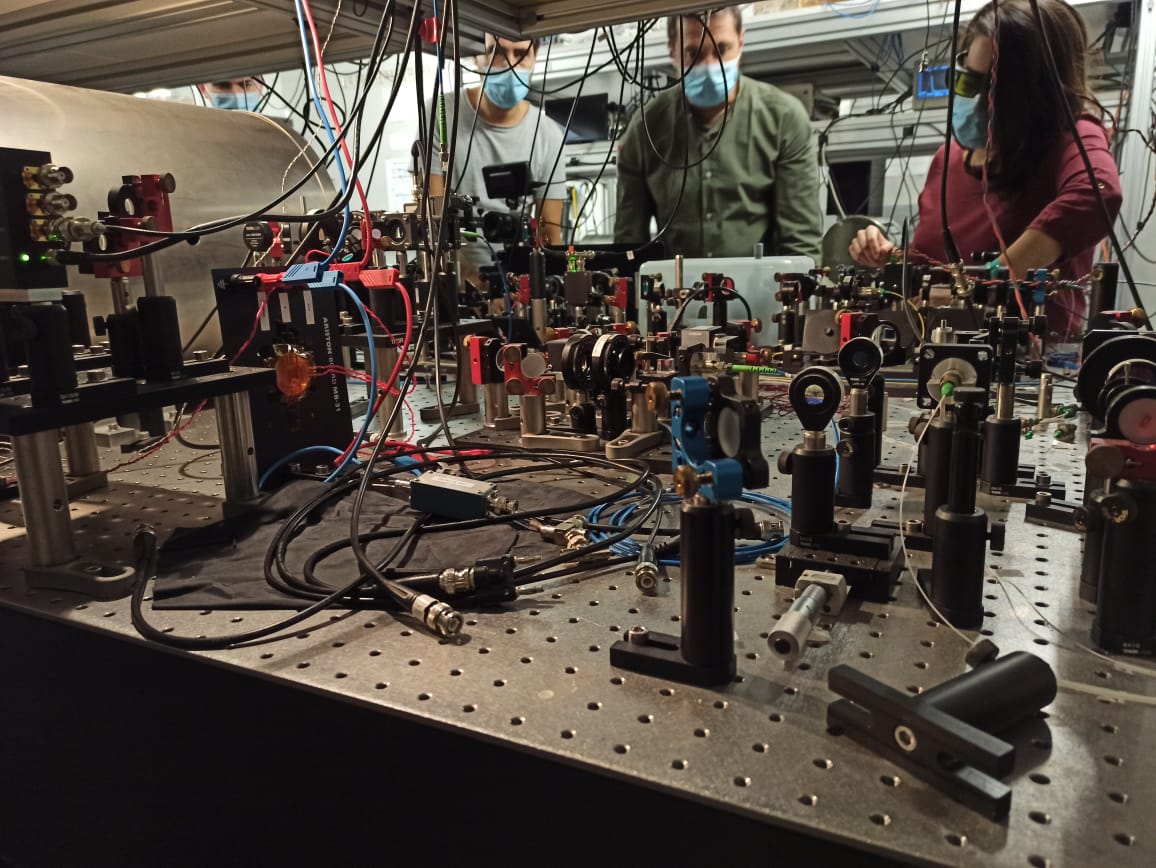macQsimal researchers at ICFO, Charikleia Troullinou, Ricardo Jiménez-Martínez, and Vito Giovanni Lucivero, led by Prof. Morgan Mitchell, showed experimentally that extra-quiet light can make a sensitive magnetometer even more sensitive.
Precise detection of magnetic fields is important for applications that range from magnetic brain imaging to the detection of sunken ships. For many of these applications, the most sensitive magnetic-field measuring instruments (magnetometers) are “optically-pumped magnetometers”, which use laser light to probe magnetically sensitive atoms. In many cases, the sensitivity of these instruments is limited by random variations (noise) in the laser light used. If that noise can be reduced, the magnetometer becomes more sensitive.
Scientists work hard to make their lasers as noise-free as possible, but there are limits: light, even laser light, arrives as packets of energy (photons), and the random arrival of these photons produces a noise known as “shot noise.” Nevertheless, the shot-noise limit is not absolute. If one could organize the photons to arrive in a more regular stream, the light stream would be quieter and the measurement more precise.
In a recently published paper, Squeezed-Light Enhancement and Backaction Evasion in a High Sensitivity Optically Pumped Magnetometer researchers show that the critical factor in the squeezed light method is the evasion of measurement back-action. That is, the light that probes the atoms must only disturb the atoms in ways that do not change their response to the magnetic field. They then constructed a back-action evading magnetometer, applied squeezed light, and saw that this improved the sensitivity.
In their experiment, the team built a Bell-Bloom optically pumped magnetometer and used polarization squeezed light to observe the response of a dense, hot cloud of rubidium atoms (87Rb) to a magnetic field.
Link to the paper: https://journals.aps.org/prl/abstract/10.1103/PhysRevLett.127.193601
Link to the full article: https://icfo.eu/newsroom/news/article/5198

